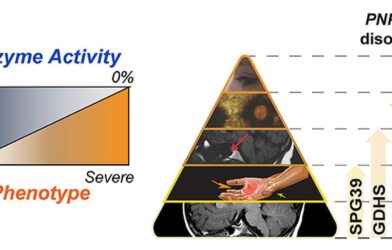Maryland, USA: A healthy human pregnancy lasts for about 40 weeks. Preterm birth—birth occurring before 37 weeks—increases the risk of infant death and many lasting health problems.
Infection with SARS-CoV-2 (the virus that causes COVID-19) during the third trimester of pregnancy has been linked with an increased risk of preterm birth. Vaccines against SARS-CoV-2 have been shown to be safe and effective during pregnancy. However, whether they reduce the risk of preterm birth hasn’t been clear.
At a Glance
- While contracting COVID-19 increased the risk of preterm birth between 2020 and 2022, researchers found that the risk largely disappeared by the end of 2022.
- This was due in part to the widespread uptake of vaccines against SARS-CoV-2, which helped to boost the population’s immunity.
In a new study funded in part by NIH, Dr. Florencia Torche from Stanford University and Dr. Jenna Nobles from the University of Wisconsin-Madison looked more closely at this question. They examined births in California hospitals between 2014 and 2023. Beginning in June 2020, the state tracked COVID testing on mothers upon admission. This provided a highly accurate estimate of infections during labor and delivery among hospitals with universal testing. Results were published in the December 5, 2023, issue of Proceedings of the National Academy of Sciences.
The researchers analyzed siblings to examine the effects of COVID-19 infections. This approach accounts for other factors that might affect the risk of preterm birth, such as poverty, race and ethnicity, and personal risk factors. The analysis showed that COVID-19 infection raised the risk of preterm birth from 7.1% to 8.3% from July 2020 to February 2023. This increase in risk is similar to that seen from a massive environmental exposure, such as three weeks of exposure to high-intensity wildfire smoke.
The largest effect of maternal COVID-19 infection on preterm birth was in 2020, with the preterm birth rate rising by 5.4% between July and November 2020. COVID-19 infection then increased the probability of preterm birth by around 2-4% during 2021, which saw waves of infections caused by different variants. During 2022, the impact of COVID-19 infection on preterm birth disappeared.
To tease out the effect of vaccination, the researchers compared the impact of COVID-19 infection on preterm births between areas with the fastest vaccine uptake and those with the slowest. Zip codes with the fastest uptake had an 86% vaccination rate by March 2022. Those with the lowest rates reached 51% during the same time period. Until May 2021, the impact of COVID-19 infection on preterm birth rates was similar between areas. They then dropped sharply in high-vaccination areas, while staying high in low-vaccination areas until almost a year later. This strongly suggests that vaccination accounted for the difference in the rate of preterm births.
By the end of 2022, the impact of COVID-19 on preterm births had faded, despite an increase in infections caused by the Omicron variant. Vaccines had become widely available as well as effective therapies for COVID-19. New variants had emerged, and more of the population had acquired immunity to SARS-CoV-2.
As SARS-CoV-2 continues to mutate, updated booster shots will likely be needed to keep immunity high. Currently, booster uptake in pregnant individuals lags behind that of the rest of the population.
“We already know there is very little evidence of adverse effects of vaccination on fetal development. The results here are compelling evidence that what will actually harm the fetus is not getting vaccinated,” Nobles says. “By increasing immunity faster, early vaccination uptake likely prevented thousands of preterm births in the U.S.”
—by Sharon Reynolds
-NIH news












